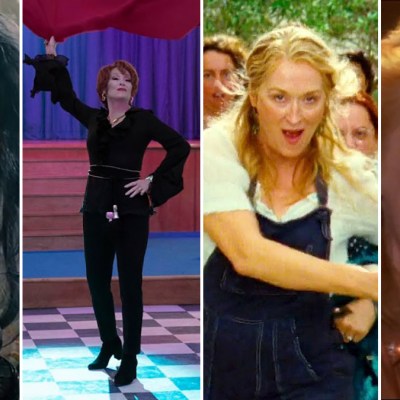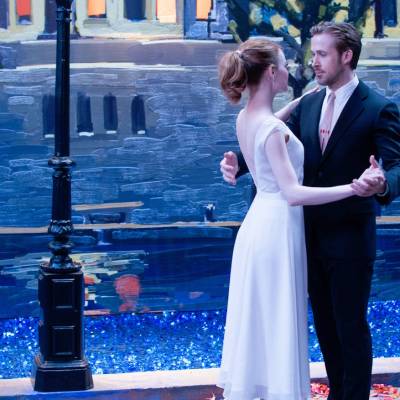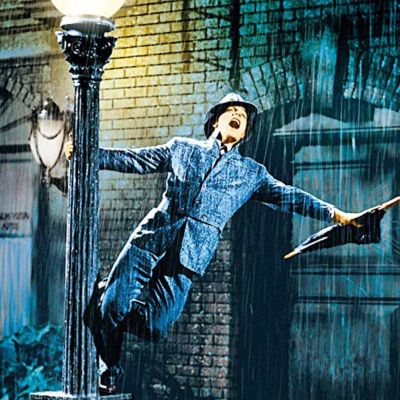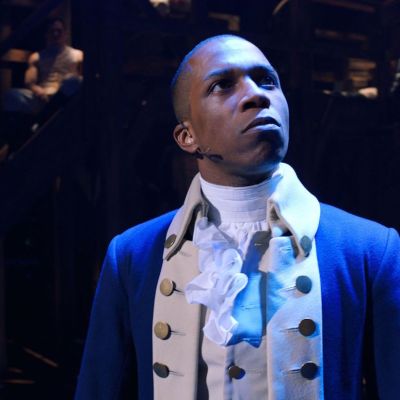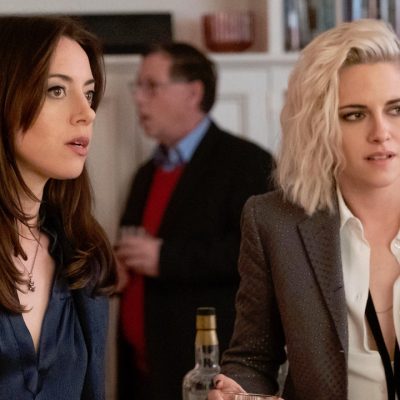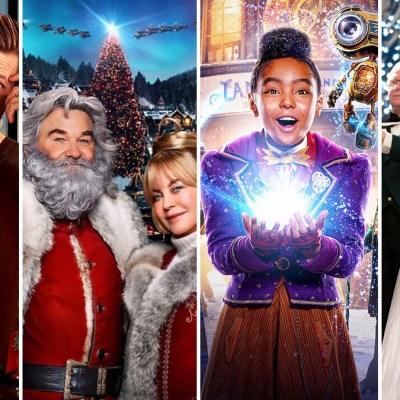The Prom: Ranking Every Song in the Movie Musical Soundtrack From Worst to Best
From promposals to Broadway riffs, we rank the musical numbers in Ryan Murphy and Netflix’s The Prom from worst to best.
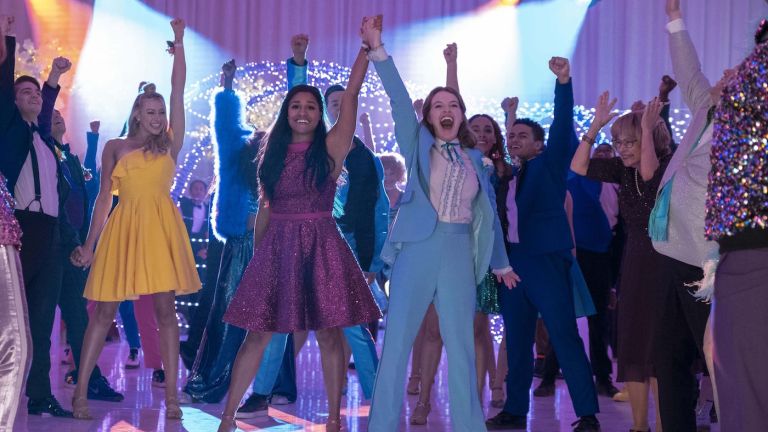
The 2018 Broadway musical The Prom has always had a somewhat shaky premise, combining a quartet of narcissistic Broadway stars (Meryl Streep, James Corden, Nicole Kidman, and Andrew Rannells) looking for a way to be relevant again with a lesbian couple’s (Jo Ellen Pellman and Ariana DeBose) simple wish to attend their prom in Edgewater, Indiana. The two threads collide when the prom gets blown up into a civil rights issue. However, the stage show reconciled these seemingly disparate elements into a heartwarming tale of self-acceptance for all involved: straight or gay, closeted or out, aging star or varsity cheerleader.
Ryan Murphy’s film adaptation for Netflix, by contrast, is less successful. The awkward space between these two stories is more pronounced, with the Broadway portions plagued by puzzling lighting and editing choices. Combine that with some truly head-scratching casting among three of the four adults, and it distracts from the intent of basically half the soundtrack.
However, when it comes to all things prom-related, the adaptation is nearly as strong as its Broadway predecessor, and in some places utilizes cinematic elements to surpass the original versions of key musical numbers. With that in mind, we’re ranking all 19 songs from worst to best, keeping in mind that the rankings would likely have turned out differently had we been considering the musical itself.
19. Barry is Going to Prom
James Corden was disastrously miscast as gay actor Barry, who removed himself from his parents’ lives as a teenager before they could cast him out, yet is still clearly in need of closure. One can never shake the feeling of watching this straight actor put on queer identity as an ill-fitting suit; there’s more than one “did I just hear that right?” moment of him lisping his way through a scene.
He brings that disingenuously effeminate energy to Barry’s big number, “Barry is Going to Prom,” and tarnishes what should be a triumphant showstopper. Not surprisingly, Corden in a silver-and-aqua tux mincing through a fantasy sequence is so much less compelling than original star Brooks Ashmanskas belting in his pajamas.
18. Simply Love
The second of the two end credits songs seems to be a rejected number for Barry’s reunion with his estranged mother while also advocating for Emma. Despite the feeling Corden tries to infuse into it, emotionally it’s empty. The only thing saving it from rock bottom on this list is that there are no accompanying visuals.
17. The Acceptance Song
The first sign that the Broadway crew have overestimated their star power is when their big “rally” in Emma’s honor gets booked… at the halftime show of the local monster truck rally. They try to sing a song about acceptance, but neither they nor the monster truck enthusiasts are equipped to give or receive the message. It’s a forgettable song, but that’s kind of the point, isn’t it?
16. Wear Your Crown
The first end credits song is so overproduced that I had to look up who sang it—turns out it’s the entire cast, their voices blended into one unnatural warble. The only thing that saves it is that they do the musical credits thing where they match the names with the performances (here, it’s them posing at the prom with superlatives), so you can remember who you did or didn’t like all over again.
15. Zazz
As solo numbers go, this is not Nicole Kidman’s best; but then again, can anything really top Moulin Rouge!? Perennial chorus girl Angie’s ode to making yourself a star is meant to evoke Bob Fosse and Chicago, but winds up resembling a mere shadow of that brilliance. And, unlike how Kidman breaks our hearts with “Come What May,” this ditty could have been sung by anyone.
14. Changing Lives
As opening numbers go, this one doesn’t rank very high, in part because it has to do so much heavy lifting for the less obvious half of The Prom’s premise: Dee Dee (Meryl Streep, unconvincing at the start) and Barry watch their Eleanor Roosevelt musical close on opening night because they are too self-involved to authentically inhabit these historical figures.
Scrolling Twitter’s trending topics for a “cause” that will reverse their PR disaster, they find Emma and automatically decide that they can and will change her small-town baby gay life. With all that exposition, the song’s actual message—that actors and art can change people’s lives—gets lost. What is fun is intercutting the post-show glow with footage of Dee Dee and Barry in costume as Eleanor and FDR on-stage in what feels like a parody of Hamilton.
13. It’s Not About Me
This is a peppier, more on-the-nose version of “Changing Lives,” yet it strikes a bunch of discordant notes, like Dee Dee and co. sweeping into the PTA meeting to rally for Emma but really turn the spotlight on themselves. It’s too much cringe, too early in the story; and worst of all, Streep simply doesn’t seem to be having fun. Instead she looks like she has to force this number out to get on to the more compelling stuff.
12. Changing Lives (Reprise)
The reprise ranks higher than its predecessor because there’s just enough of an ironic twist to signal to the audience that we’re immediately poking fun at these self-obsessed Broadway stars. The line “We’re gonna help that little lesbian / Whether she likes it or not” is unexpectedly hilarious, though the CGI Times Square backdrop is tough to swallow.
11. We Look to You
Perhaps it’s not surprising that all of the songs about the saving power of art are clumped in the same section of the ranking. Perhaps that element of the show translated better to the literal stage, but in the movie these sequences are garish and don’t fit alongside the sweet, straightforward conflict that Emma and Alyssa face.
This number does try to bridge that divide, however, with Keegan-Michael Key’s straight ally Principal Hawkins tenderly serenading Dee Dee with memories of her performing. Yet through no fault of his own, they still seem an oddly matched pair, which dampens the romantic effect of the song.
10. Unruly Heart
As Emma’s big number, delivered via humble strumming on YouTube that goes viral by tugging the heartstrings of LGBTQ teens everywhere, “Unruly Heart” felt as if it should have ranked higher. There’s a fun effect of Emma’s bed spinning, making the confines of her room seem bigger as her message spreads to millions of people; it also looks like something out of a Broadway show. But one is left with the feeling that this should be a tearjerker for where it exists in the story. This is likely the biggest casualty of the stage-to-screen adaptation.
9. The Lady’s Improving
This is Streep in her musical element, bringing to mind a mix of the whimsy of “Money, Money, Money” and the yearning of “Mamma Mia.” It’s also got that sharp cleverness that’s all too rare in the Broadway portion of this story, with Dee Dee resurrecting her starring role for a one-afternoon-only, private performance for Hawkins. Wouldn’t you know it, this unapologetic preying on his nostalgic fandom for a fictional character is what actually sells their oddball relationship.
8. Alyssa Greene
DeBose’s bitter defense of staying in the closet starts out as the seemingly low-stakes complaints of a straight-A student afraid to step out of line. But as Alyssa’s refrains keep returning to her mother (Kerry Washington)—complete with flashbacks of earnest Washington playing the helicopter-mom to a tee—it becomes achingly clear just how committed Mrs. Greene is to making her daughter’s life not be “difficult,” at least by her metrics. It’s also clear how much Alyssa feels she owes her.
The best part is that this impassioned “I wish” song is not enough to win back Emma’s trust, and actually leads to their breakup instead. Emotional vulnerability, met with stakes-raising conflict! We love to see it.
7. It’s Time to Dance
Sure, it’s the triumphant final number, but it’s also so much spectacle (mostly with the ensemble’s too-cool-for-school dancing) that it’s difficult to focus on the emotional underpinnings. Reprisals of motifs like “Dance with You” (look ahead) and “Unruly Heart” buoy it up, and of course so does Emma and Alyssa’s big kiss. But this feels like the big shiny denouement as opposed to the less polished but more poignant songs that will stick with you longer.
6. Tonight Belongs to You (Reprise)
Just as “Changing Lives (Reprise)” recontextualizes its predecessor, the reprise of “Tonight Belongs to You” twists the knife: After being humiliated by the school-wide prank of the fake prom, Emma tortures herself with one last reminder that tonight was always about the “normal” kids. It’s the heartbreaking complement to her stalwart sense of self in “Just Breathe” (see below), with Emma confronting the truth that even if she loves herself, her peers and their parents don’t.
5. Love Thy Neighbor
Without a doubt, Rannells makes this song more charming than it has any right to be. You couldn’t have found a better choice than the Book of Mormon alum to point out the hypocrisy in cherry-picking which religious rules to follow. And unlike a lot of The Prom’s other attempts to shoehorn Broadway culture into this small town, the Godspell vibe of “Love Thy Neighbor” expertly gets through to these closed-minded classmates. If Rannells were teaching drama and the Bible to teens like this, it’d go a long way toward bridging that empathy gap.
4. Just Breathe
Pellman is earnestly wonderful even in songs that are duds, but this is the perfect introduction. “Note to self: Don’t be gay in Indiana” tells you everything you need to know about how lovely Emma is: wry and self-assured, secure in both her own identity and in who she loves, even if she has to protect that secret for Alyssa.
Yet this inner monologue of a song is relatable to all adolescents who don’t quite fit into high school’s damning constraints, a keen reminder to just breathe and move past the moment, looking ahead to a place or hopefully someday a world in which they won’t be the odd person out.
3. You Happened
This bubbly number seemingly shouldn’t rank so high in the list, yet it’s the most authentic aspect of the story it’s depicting: Teenagers acting out the epic love stories they’ve seen in film and yes, on the stage, playacting at adult declarations of devotion.
It’s the classic promposal that teens have swooned over from Laguna Beach to TikTok, but one-upped through boy-band choreography and a built-in chorus of high schoolers crooning “Youuuu happened!” like it’s the big love confession from When Harry Met Sally. Yet these over-the-top promposals don’t hold a candle to…
2. Dance with You
Emma and Alyssa’s sweet anthem has the sweeping strains of a classic love song—old-Hollywood romance that reflects their simple wish to not be symbols of a movement, but to get the same quintessential high school experience as their straight classmates. It’s also one that benefits from the movie expanding the scope of a song, with the young lovers walking hand-in-hand through their empty school and waltzing under ethereally lit pink trees. Every time the motif recurs in later songs (hitting different notes each time), it conjures that same swell of emotion.
1. Tonight Belongs to You
The fact that this song attained number-one despite Corden’s bad performance overshadowing the first verses is a testament to its infectious joy, and to the frankly incredible layers of emotion contained within.
Beneath the giddy veneer of getting ready for prom, there are so many darker aspects: Barry strong-arming poor Emma into a femme makeover in an attempt to live vicariously through the prom he never had. Cheerleaders Shelby and Kaylee singing “One thing’s universal / Life’s no dress rehearsal” as they step into identical limos in their cookie-cutter cul de sac, as if they could ever fathom an experience outside of their own. This entire song claims that the night is about Emma, but it’s about everyone but her, and that is so uncomfortably truthful.
And then… the moment Emma steps into the gym to find that the entire school played a cruel trick on her. Her peers singing as if they’re in the same boat as her, as they sail on to their real prom, leaving her the humiliation of entering the empty school gym, encapsulates the brutality of high school in a single song. They’ve turned the supposedly empowering Act I finale into the ultimate villain song. The Prom is uneven overall, but as enduring musical songs go, “Tonight Belongs to You” takes the crown.
But as with all things prom, every vote counts. How would you rank the songs from Netflix’s The Prom?
The Prom is now streaming on Netflix.

